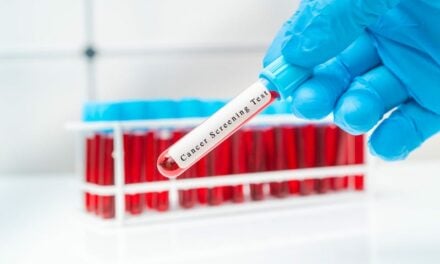Some patients with prostate cancer have genetic mutations that may impact their treatment. A comprehensive, on-site genetic testing program, pioneered by urologists, could help to close the gap for this underutilized resource, reports a study in Urology Practice, an Official Journal of the American Urological Association (AUA). The journal is published in the Lippincott portfolio by Wolters Kluwer.
Howard Korman, MD, CEO and president of Comprehensive Urology, along with Chief Pathologist Kirk Wojno, MD, pioneered and implemented a novel algorithm to provide genetic testing to patients with newly diagnosed prostate cancer, based on current guidelines.
“This pathway provided a uniform avenue for our 34 urologists across 20 different locations to meet the new standard of care with regards to genetic testing, to improve patient compliance, and to enhance the overall quality of patient care,” says Korman.
Detecting Mutations in Prostate Cancer
In order to further improve the delivery of cutting-edge cancer care, Korman’s team collaborated with a multidisciplinary team of medical oncologists. “Adopting a guideline-based model with on-site genetic testing improved the ability of urologists to detect germline mutations,” notes oncologist Savitha Balaraman, MD. “The foresight of the urology group to partner with medical oncologists allowed us to better utilize targeted therapies, offer enrollment in clinical trials and recommend cascade testing for family members, which significantly broadened the scope of care provided to the patient and their families.”
Research has identified several clinically important genetic mutations associated with prostate cancer, including mutations associated with more aggressive malignancy and poorer clinical outcomes.
“Considering the link between family history, genetic mutations, and prostate cancer, the importance of genetic testing in the diagnosis and treatment of prostate cancer cannot be overstated,” says Korman.
Yet, genetic testing for patients with prostate cancer remains “significantly underutilized.” A key factor is the lack of an effective protocol to signal physicians when genetic testing and counseling may be indicated. Initially, genetic testing was performed at the discretion of the treating urologist at the study clinic and required patients to make another visit to a separate facility.
Genetic Testing Protocol Triples Rate of Patient Compliance
In 2018, the researchers introduced the comprehensive genetic testing protocol at their large urology practice. Consistent with National Comprehensive Cancer Network guidelines, patients were recommended for testing to identify mutations associated with prostate cancer based on family history of prostate cancer, hereditary breast or ovarian cancer, and Ashkenazi Jewish ancestry, among other factors. Testing was performed at routine clinic visits, with follow-up genetic counseling provided by the patient’s urologist or other clinicians.
Although the clinic’s annual patient volume remained about the same, the new workflow substantially increased the number of patients receiving genetic testing. Testing was recommended for 474 patients after introduction of the guideline-based protocol, compared to 78 patients before the practice change.
The new protocol approximately tripled the rate of patient compliance with recommended genetic testing: from 33.3% to 98.7%. Point-of-care testing also decreased turnaround time to the availability of genetic test results, from 38 to 21 days.
“Given the growing importance of genetic testing in the management of prostate cancer, these results present a solution to bolster the implementation of genetic testing in urology practices,” Korman says.
The authors plan a further report detailing the types of mutations detected by the new testing workflow. The researchers emphasize the need for larger studies to confirm their findings and discuss barriers to more widespread use of genetic testing for prostate cancer, including concerns over costs and insurance coverage.





